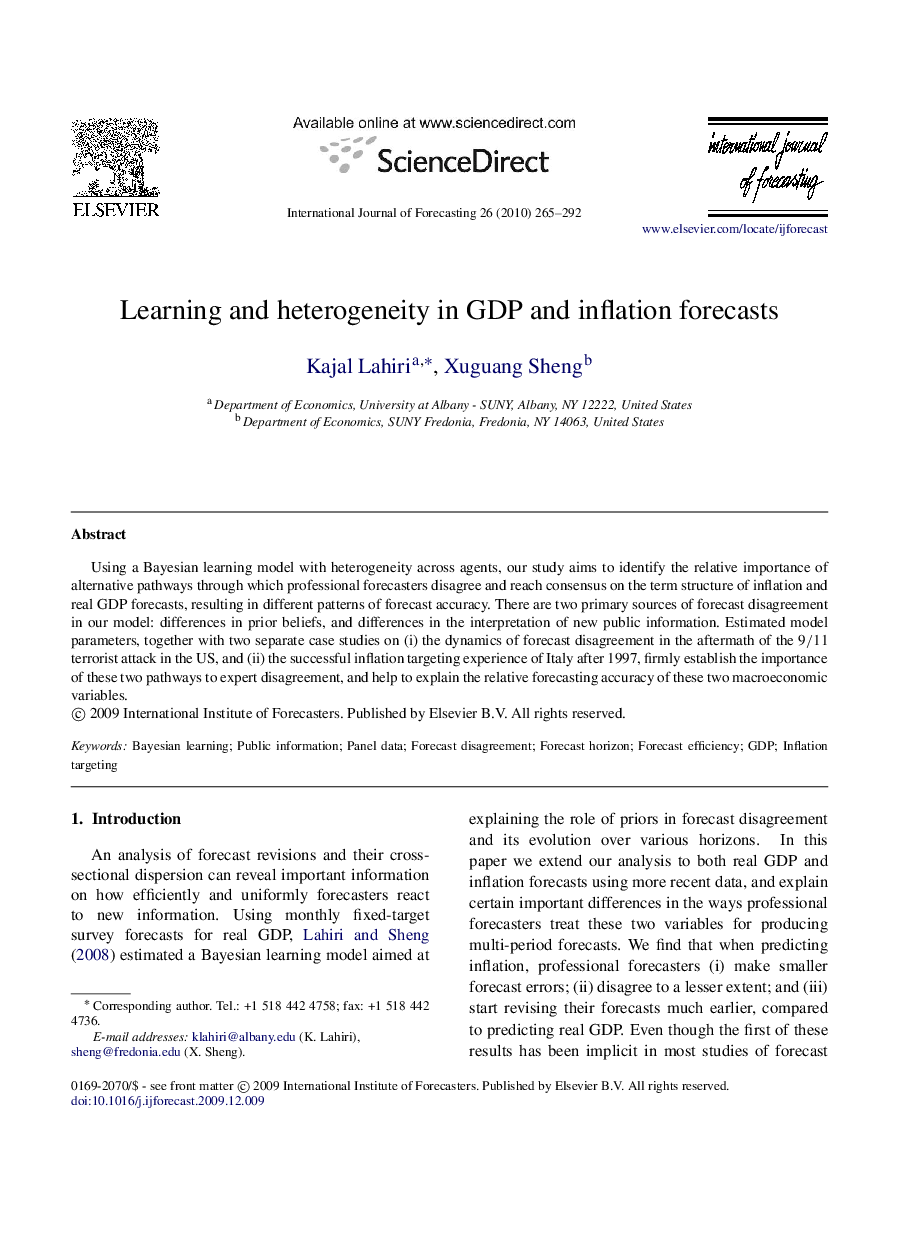| Article ID | Journal | Published Year | Pages | File Type |
|---|---|---|---|---|
| 997665 | International Journal of Forecasting | 2010 | 28 Pages |
Using a Bayesian learning model with heterogeneity across agents, our study aims to identify the relative importance of alternative pathways through which professional forecasters disagree and reach consensus on the term structure of inflation and real GDP forecasts, resulting in different patterns of forecast accuracy. There are two primary sources of forecast disagreement in our model: differences in prior beliefs, and differences in the interpretation of new public information. Estimated model parameters, together with two separate case studies on (i) the dynamics of forecast disagreement in the aftermath of the 9/11 terrorist attack in the US, and (ii) the successful inflation targeting experience of Italy after 1997, firmly establish the importance of these two pathways to expert disagreement, and help to explain the relative forecasting accuracy of these two macroeconomic variables.
